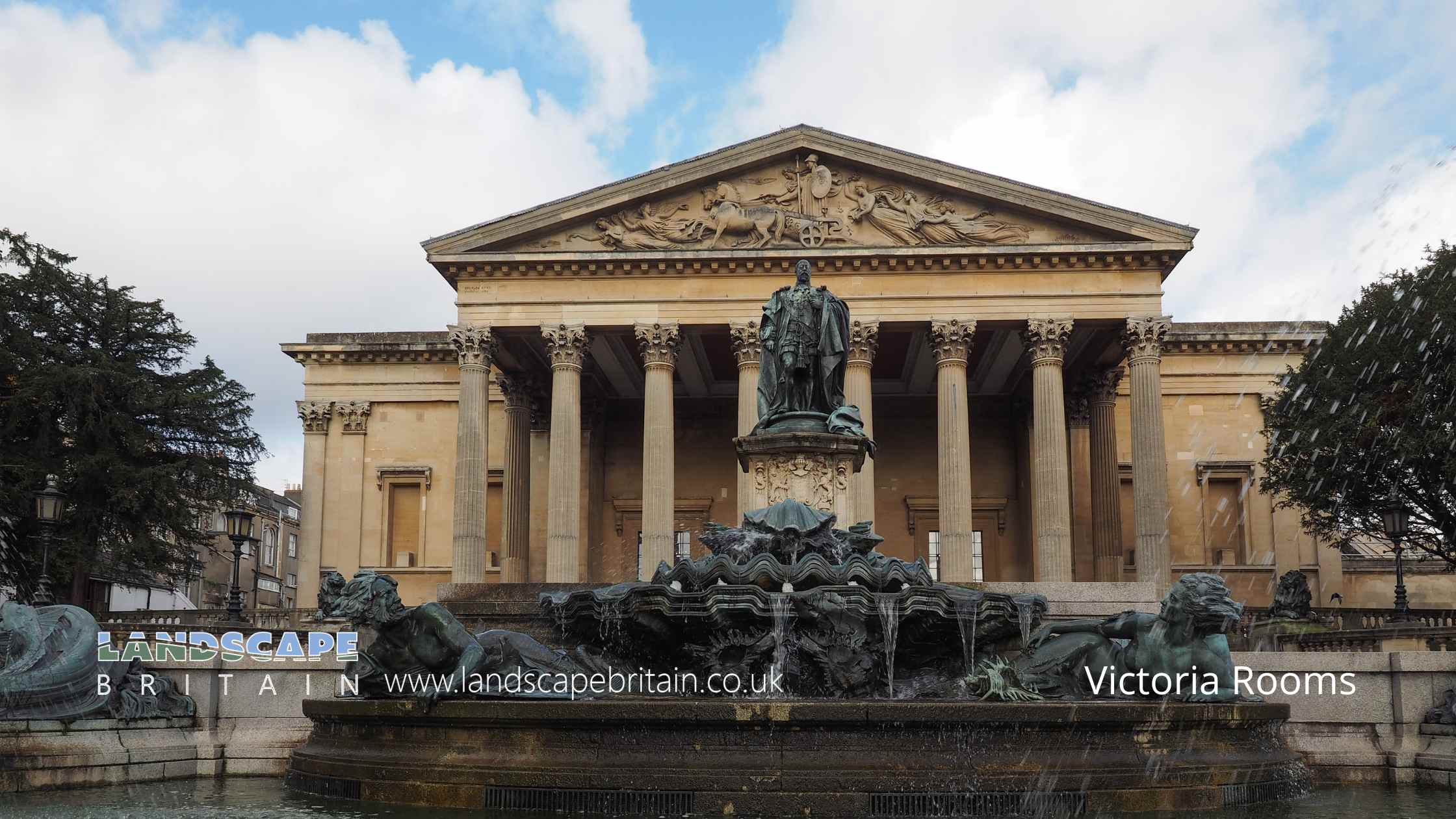
Victoria Rooms
Victoria Rooms
The Victoria Rooms, located in Bristol, England, is a magnificent historic building, auditorium and recital room. Originally built in the 1830s, this architectural gem holds great significance in the cultural and academic history of the city.
Historic Significance
The Victoria Rooms were designed by Charles Dyer, a prominent Bristol architect of the time. The building was originally constructed as a venue for social gatherings, concerts, and exhibitions. Its grand neoclassical facade, adorned with Corinthian columns, showcases the architectural style prevalent during the 19th century.
Over the years, the Victoria Rooms hosted numerous noteworthy events and performances, becoming a hub of cultural and intellectual activity. It welcomed renowned speakers, musicians, and scholars, establishing itself as a prestigious venue in Bristol’s social scene.
Transformation into an Auditorium and Recital Room
In the present day, the Victoria Rooms has undergone a careful restoration and transformation to serve as an auditorium and recital room. The historical integrity of the building has been preserved, allowing visitors to experience its rich heritage while enjoying modern amenities and facilities.
The main auditorium, with its impressive acoustics, provides an exceptional venue for concerts, lectures, and other performances. The space can accommodate a substantial audience, offering an intimate yet grand atmosphere. The original features, such as the ornate ceiling and elegant decor, add to the allure of the performances held within these walls.
Contemporary Usage and Cultural Impact
Today, the Victoria Rooms continues to play a vital role in Bristol’s cultural landscape. It hosts a diverse range of events, including classical music concerts, chamber recitals, academic lectures, and public talks. Renowned orchestras, soloists, and ensembles from around the world grace its stage, captivating audiences with their exceptional performances.
The Victoria Rooms serves as a significant platform for emerging talent, nurturing the local arts scene and providing a space for aspiring musicians and performers to showcase their skills. It is also an important venue for academic conferences and cultural exchanges, fostering intellectual discourse and community engagement.
The transformation of the Victoria Rooms from a historic building to a contemporary auditorium and recital room has breathed new life into this architectural treasure. With its blend of timeless elegance and modern functionality, it continues to captivate audiences and contribute to the vibrant cultural fabric of Bristol. The Victoria Rooms stands as a testament to the city’s rich history and its commitment to the arts and intellectual pursuits.
Created: 23 May 2023 Edited: 29 November 2023
Victoria Rooms Information
Victoria Rooms Address
88 Queens Rd, Clifton, Bristol
BS8 1SA
Website: http://www.bristol.ac.uk/music/facilities/vicrooms
Get directionsLocal History around Victoria Rooms
There are some historic monuments around including:
Maes Knoll campBlaise Castle, Iron Age hillfort, Roman and medieval remains, and post-medieval gardenChapel at Lower CourtDominican Friars (Quaker's Friars)Stokeleigh Camp: a promontory fort in Leigh WoodsPart of a Roman road on Durdham Down 865m north east of Black RocksWansdyke: section E of Maes Knoll campSecond World War heavy anti-aircraft battery 590m north east of Highwood House, Pur Down, BristolPart of a minor Romano-British villa at Long CrossFairbairn Crane, Bristol HarbourTemple ChurchDeserted medieval farmstead and part of a Romano-British field system 400m north of Fenswood FarmSection of City Wall, King StreetThe Mere Bank and flanking ditchesBowl barrow in Bowness Gardens 315m north west of the swimming lakeHermitage in Quaker burial ground near St Mary RedcliffePart of the Roman Settlement of AbonaePart of Bristol city wall 185m west of Bristol BridgeVault in High StreetBristol Castle vaulted chambersClifton Down camp, CliftonMedieval vaults N of St Peter's ChurchCivil War defences on Brandon HillDruid Stoke burial chamber, Stoke BishopDeserted medieval farmstead NE of NorthwickBet tohorah at Jacob's Wells RoadSt Mary-le-Port ChurchKing's Weston Hill camp, HenburyUnderfall Yard, Bristol DocksRoman settlement, part of an associated field system and earlier Iron Age settlement remains at Gatcombe FarmChurchyard cross in St Michael's churchyard.





